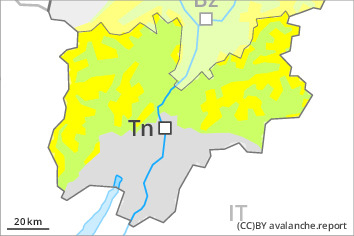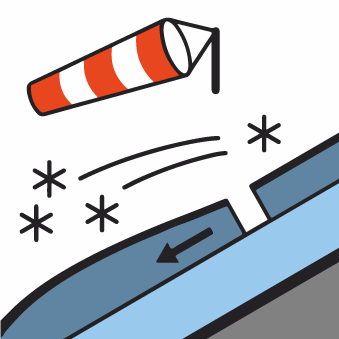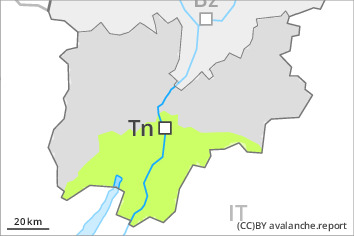
Danger level
 | treeline |
|  |
|  |

As the day progresses as a consequence of new snow and stormy weather there will be an increase in the avalanche danger. Fresh wind slabs are to be evaluated critically.
The fresh wind slabs can be released easily. or in isolated cases naturally,, especially on steep shady slopes in areas close to the tree line, as well as above the tree line. They can especially at their margins be released very easily. Caution is to be exercised in particular at the base of rock walls, as well as in gullies and bowls, and behind abrupt changes in the terrain. The prevalence of the avalanche prone locations will increase with altitude. Avalanches can reach medium size.
Snowpack
dp.6: cold, loose snow and wind
Over a wide area 10 to 20 cm of snow will fall above approximately 1500 m. The violent wind will transport the new snow significantly. The fresh wind slabs are lying on soft layers at high altitudes and in high Alpine regions.
Towards its base, the snowpack is faceted. The snowpack will be generally subject to considerable local variations.
Low and intermediate altitudes: Towards its base, the snowpack is moist.
Tendency
Hardly any decrease in avalanche danger. Fresh wind slabs represent the main danger.


